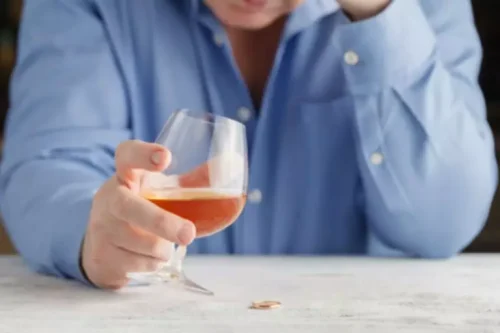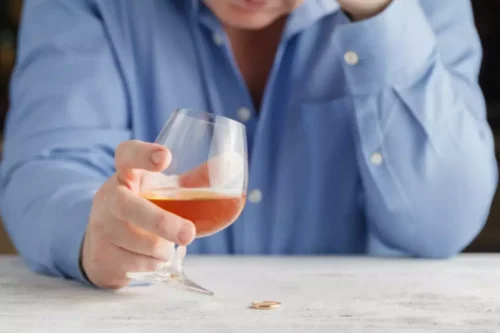Alcohol Relapse: Rates & Statistics How to Move Forward

55% of all Americans with some form of alcohol abuse disorder find it harder to avoid drinking on special occasions. 18% of people in the United States who are considered to be recovering alcoholics have been able to abstain from drinking entirely one year later. 60% of all people in the Unites States with an alcohol use disorder will have a successful long term recovery from this disorder. 25% of people in the United States with an alcohol use disorder have attributed their relapse to their own personal low motivation.

Is it common for people to relapse multiple times?
70% of all people with an alcohol use disorder in the United States will have at least one relapse during their recovery period. 23.4% of people with an alcohol use disorder in the United States have had a relapse if they have attended fewer than six AAA meetings. This underscores the complex nature of addiction and the ongoing challenges in maintaining long-term sobriety.

How Does Stress Lead to Risk of an Alcohol Relapse?
When it comes to addressing alcohol relapse and ensuring long-term recovery, a combination of professional help, behavioral therapies, and medications plays a crucial role. Understanding the importance of these aspects can significantly impact the journey toward sobriety and relapse prevention. Research indicates that the duration of treatment plays a critical role in recovery outcomes. Studies Alcohol Relapse show that individuals who undergo at least three months of treatment for alcohol use disorders tend to maintain sobriety better compared to those receiving shorter durations. This correlation suggests that sustained treatment approaches are more effective.
What strategies are effective in preventing alcohol relapse?
25.0% of all Americans with an alcohol use disorder will not be able to stop drinking even after they’ve completed one or more treatment programs. It is important to remember that recovery is a journey, not a destination, and that relapse does not mean failure. drug addiction With the right approach, individuals can find the strength and resilience to overcome their addiction and achieve lasting sobriety.
In fact, some studies suggest that up to 90% of people who try to quit drinking will experience at least one relapse. Stress, social isolation, comorbid mental health disorders, certain triggers such as being around others who are drinking or experiencing negative emotions, and overconfidence are all common triggers for alcohol relapse. 70% of individuals struggling with alcoholism will relapse at some point, however, relapse rates decline the longer someone stays sober. Relapse can take different forms, ranging from a single episode of heavy drinking to a prolonged return to problematic alcohol use.
Opioid Detox Symptoms
- For further information about addiction and recovery, explore our articles on current alcoholism statistics & facts and statistics about drug abuse & facts.
- The relapse rates for alcohol addiction hover around 40-60%, which is comparable to chronic conditions like hypertension and asthma.
- Understanding alcohol relapse statistics & facts can provide valuable insights into the experiences of those struggling with alcohol dependence.
- 25% of all Americans with an alcohol use disorder will have a relapse because they are unable to find a long term support network.
- Discover community addiction recovery programs in Ohio, addressing challenges, stigma, and post-treatment support effectively.
- Natural remission may be followed by a high likelihood of relapse; thus, preventive interventions may be indicated to forestall future alcohol problems among individuals who cut down temporarily on drinking on their own.
Two, because lack of support from family or an understanding social circle can be isolating, which may cause a person in recovery to drink as a coping method. In treatment, there’s a heavy focus on trigger handling and developing coping mechanisms when triggers are unavoidable. Still, though, triggers are pervasive and dangerous to a person’s sobriety, especially in early recovery.

How Long Is Inpatient Drug Rehab
- This stark difference underscores the need for integrated treatment approaches that address both mental health and substance use disorders.
- It is the combination of these elements that forms a comprehensive approach to relapse prevention and long-term wellness.
- Withdrawal is the earliest phase of recovery, when the body is initially exposed to the absence of alcohol in the system.
- Some individuals may relapse shortly after achieving sobriety, while others may maintain their recovery for an extended period before encountering a relapse.
- Rather, it is an opportunity to learn from the experience and continue to work towards a successful recovery.
However, women may experience more intense cravings and psychological factors that could heighten the relapse risk upon returning to drinking. Understanding these nuances is important for tailoring support and intervention strategies effectively. Explore alcohol relapse statistics & facts, uncovering vital data and insights for understanding recovery challenges. 69% of all Americans with an alcohol use disorder will have an least one emotional relapse during the process of recovering from alcohol abuse disorder. Discover what drug detox is like, from managing physical and emotional challenges to the importance of support systems and aftercare for lasting recovery. Involving family members in the recovery process has been shown to improve success rates by up to 50%.
- 38% of all Americans with an alcohol use disorder still report drinking moderately.
- It is important for healthcare providers to assess the individual’s needs and tailor medication regimens accordingly to maximize their effectiveness in supporting long-term recovery.
- However, it is notable that relapse rates tend to decline the longer someone maintains sobriety.
- Learn to identify triggers and build a solid support system for lasting recovery.
Recovery Programs
Mental health issues like depression, anxiety or bipolar disorder can make it more difficult to stay committed to sobriety, increasing the likelihood of alcohol relapse. Discover what an outpatient treatment program is and explore its benefits for flexible addiction recovery. Alcohol relapse is a significant aspect of understanding addiction and recovery. This section will define what relapse is and explore the factors that contribute to it. We take care of your physical, mental and emotional health =https://ecosoberhouse.com/ to help you achieve long lasting recovery.

